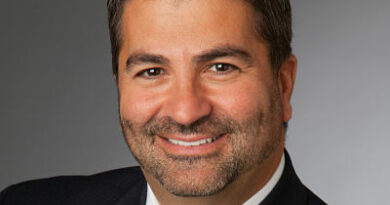Health IT and the Human Interface
By David K. Vawdrey, PhD, Chief Data Informatics Officer, Geisinger
There is strong evidence that greater patient engagement leads to better health outcomes. But how do we make individuals become more engaged in their health and healthcare? Over the past two decades, the rapid adoption of electronic health records has resulted in nurses and doctors spending too much time staring at screens, hands on keyboards. Technology has become a barrier—not an enabler—to patient-provider communication. Patients need to be seen, heard and most importantly, empowered. At Geisinger’s Steele Institute for Health Innovation we’re figuring out ways to do just that. And technology is a big part of the equation.
Technology must be designed to connect people, not just systems
Within the Steele Institute, we define innovation as “a fundamentally different approach to solving a problem that has quantifiable outcomes.” Analytics and data science experts generally focus on computable, quantifiable information, but there’s more to health than the numbers tell us. Predictive models and clinical decision support algorithms must advance beyond using discrete data typically collected in the electronic health record to include more nuanced aspects of our patients’ lives, such as their own personal observations and the social determinants that affect their health. What kind of support do they receive from family and friends? What is their level of health literacy? Do they have access to high-speed internet? What about nutritious food? How much control do they feel they have over their health and life in general?
We need to develop systems that allow health professionals to connect with people on their terms and at their level. When I visit a doctor who understands me and develops a personal connection, I feel empowered and inspired to live a healthier life. This seems obvious, but I think those of us working in the health information technology field have sometimes neglected the human aspects of what we do.
At Geisinger, we’re working to change this.
Geisinger has been a leader in improving care delivery through technology for decades. In collaboration with researchers from Harvard and Washington, we were the first organization to implement OpenNotes® on a large scale, allowing patients to electronically view their physician’s notes through our patient portal app. Even though patients had been legally entitled to view their medical records since at least the 1970s, this was the first time we made it really easy to do so, including by sending email reminders. At the time, some people expressed concern that this level of transparency would lead to patients becoming distressed or that doctors would be overwhelmed by questions from patients and families. In hindsight, I think it’s fair to say that these concerns were largely overblown—in fact, we have found that transparency has resulted in considerably greater trust and more effective communication.
We’ve expanded on the OpenNotes concept today by giving patients iPads that they use during their hospital stay to review their charts and connect with their care team. When patients and their loved ones can view their test results, keep track of medications, see the names and photos of the people taking care of them—it’s a great way to help our patients overcome the feelings of isolation and disempowerment that can come from being in the hospital.
Geisinger has been at the forefront of improving population health by understanding the social, environmental, and genetic factors that influence health and healthcare. Our Fresh Food Farmacy® program identifies diabetic patients who are food insecure, and their primary care physician writes a “prescription” for them to receive fresh fruits and vegetables, lean meats, and other health food each week for their household. We provide care management support, diabetes education and consultations with our dietitians and pharmacists. The clinical outcomes, such as weight loss and reduction in hemoglobin A1c achieved by participants enrolled in Fresh Food Farmacy, are breathtaking—but even more important is the psychological change that happens when patients are empowered to take control of their diet and their health.
Our MyCode® precision medicine initiative is the envy of my informatics colleagues across the nation. More than a quarter of a million people have consented to participate, and we have collected DNA that we are sequencing for about 170,000. We translate the DNA sequences into actionable information for patients and their doctors and connect with patients through one of the nation’s largest and most respected genetic counseling programs.
Programs like OpenNotes, Fresh Food Farmacy, and MyCode would not be possible without Geisinger’s strong health IT foundation. But we don’t consider any of them to be “IT projects.” It has been said that technology is at its best when it’s invisible. I think we really believe this at Geisinger—we focus on caring for people, not on technology for its own sake.
There will always be hype and often inflated expectations when it comes to new technologies—consider artificial intelligence and machine learning, for example. But I believe that if advanced technologies are thoughtfully implemented and rigorously evaluated, they can help us make sense of the data deluge and allow us to connect with our patients on a more human level.
One of the things I love about Geisinger is how we view ourselves as a living laboratory for healthcare transformation. And when it comes to patient engagement, we are finding innovative ways of using technology to enhance—and never inhibit—human connection.



